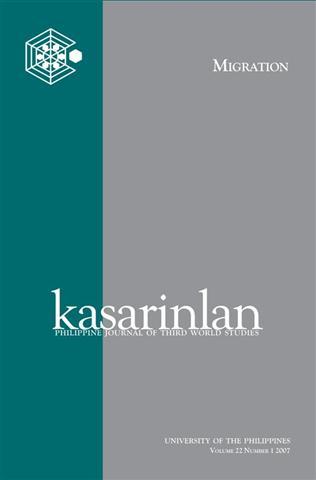Why are Most Filipino Workers in Japan Entertainers?: Perspectives from History and Law
Abstract
This article traces the development of overseas Filipinos’ occupation in Japan from musician to “entertainer.” As it establishes the not so well-known fact that music has been the occupation of most Filipinos in Japan way back in the late nineteenth century, it elucidates the factors that brought about the phenomenon. Demand-supply and push-pull factors explain a great deal, but not all. Immigration laws of Japan do not provide a key to the phenomenon, but, as this article argues, they provide a large window toward understanding it. American influence on the Philippines and Japan is another factor that has impacted on the job configuration of Filipino workers in Japan. The United States introduced jazz into the Philippines and Japan. The Filipino musicians who entered Japan before World War II were trained by Americans in the Philippines. They were hired and brought to Japan by American recruiters and were appreciated by the Westernized Japanese. Again, in the 1950s and 1960s, Filipino musicians entered Japan—usually accompanied by their American recruiters—and entertained the Japanese who had embraced a second Americanization.
How to Cite
YU JOSE, Lydia N..
Why are Most Filipino Workers in Japan Entertainers?: Perspectives from History and Law.
Kasarinlan: Philippine Journal of Third World Studies, [S.l.], v. 22, n. 1, p. 61-84, dec. 2007.
ISSN 2012-080X.
Available at: <https://journals.upd.edu.ph/index.php/kasarinlan/article/view/363>. Date accessed: 17 sep. 2025.
Section
Articles
Keywords
immigration; jazz; Mizu shobai; musicians; Okinawa; skilled workers; United States; westernization
By submitting a manuscript, the authors agree that the exclusive rights to reproduce and distribute the article have been given to the Third World Studies Center.



